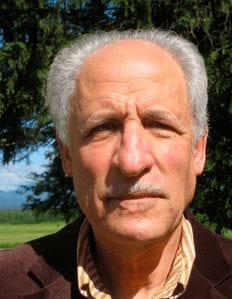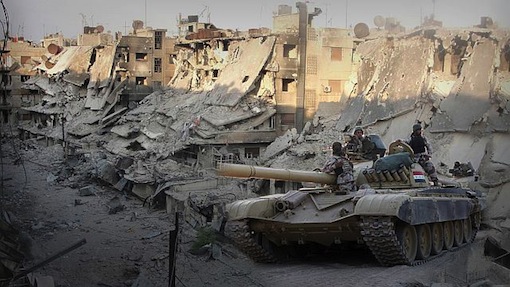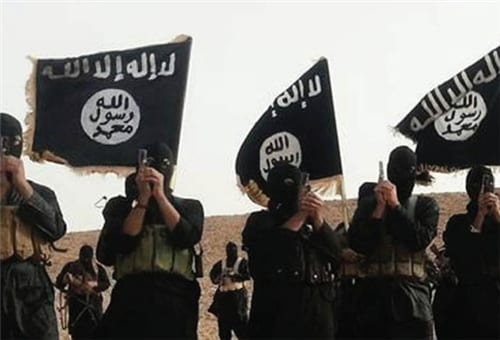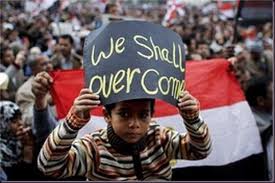Russia Supplants U.S. in Global War Against Jihadists
![]()
//

Jimmy Carter’s administration’s biggest crime was to listen to Brzezinski’s schemes to draw the Russians into a brutal war in Afghanistan. That was the inception point for the Jihadist plague.
[dropcap]I[/dropcap]srael too is therefore also recognizing the handwriting on the wall, the switch from the U.S. to Russia, and is doing what it must to defeat ISIS; it’s joining behind Russia’s leadership in the effort. However, because of Israel’s hostile relationships with the other non-Russian members of the JICC, Russia has agreed to wall-off, or separate entirely, Israel’s Russian alliance, from the other nations’ Russian alliance. Russia is in a position to do this, because Russia, with its space-satellites and its other global intelligence-gathering assets, is at the hub-position on this entire intelligence gathering wheel about Syria. All of the other nations that are participating trust Vladimir Putin’s intelligence operation, to keep each participant’s shared interests in defeating jihadists, separated from all other issues within the Russian alliance. The alliance with Russia will thus not affect their respective unrelated security-interests. This is in Russia’s interests, because it maximally empowers Russia to crush the Saudis’ international jihadist operation, an operation that started when the U.S. and its long-time ally the Saud family, were joined together by Zbigniew Brzezinski of the U.S. Jimmy Carter Administration, to crush the Soviet Union in Afghanistan, by funding, training, and arming, “mujahideen” or fundamentalist Wahhabist Sunni (that is, Saudi) fighters to go there to kill supporters of the pro-Soviet government and other secular or non-Sunni influences there. The Sauds’ main competitor in the international oil-markets has been the leading former Soviet country, Russia.

Zbigniew Brzezinski: Demonstrably one of the great malignant figures of the current era, an unrelenting, unreconstructed warmonger and fanatical anti-Russian. A cancer at the core of US foreign policy. (CSIS, flickr)
The U.S. had started, in 1979, late in Jimmy Carter’s Administration, to arm the Saudi ‘mujahideen’ fighters who then were coming into Afghanistan to overthrow the pro-Soviet government there, so as to lure the Soviets into invading Afghanistan. “I wrote to President Carter, essentially: ‘We now have the opportunity of giving to the USSR its Vietnam war’,” Carter’s National Security Adviser, David Rockefeller’s protégée (and co-Founder along with Rockefeller, of the Trilateral Commission) Brzezinski, said in a 1998 interview. After Brzezinski had succeeded at that, and the Soviet Union and its communism ended, Brzezinski has continued to advise American Presidents on what he sees as constituting the need now, to defeat Russia — a ‘need’ that U.S. President Barack Obama has strongly endorsed, such as by officially designating Russia as being by far the most “aggressive” nation of all. (Lots more ‘aggressive,’ for example, than the U.S.)
For the first time since 2007, the US Navy has now no aircraft carrier in the Persian Gulf, according to NBC News…The warship was withdrawn from the Persian Gulf on Thursday, a day after Russia fired 26 long-range cruise missiles from its Caspian Flotilla against terrorists in Syria, Pentagon officials said.
…
 They’re Not Even Close: The Democratic vs. Republican Economic Records, 1910-2010, and of CHRIST’S VENTRILOQUISTS: The Event that Created Christianity.
They’re Not Even Close: The Democratic vs. Republican Economic Records, 1910-2010, and of CHRIST’S VENTRILOQUISTS: The Event that Created Christianity.
……..
Note to Commenters
Due to severe hacking attacks in the recent past that brought our site down for up to 11 days with considerable loss of circulation, we exercise extreme caution in the comments we publish, as the comment box has been one of the main arteries to inject malicious code. Because of that comments may not appear immediately, but rest assured that if you are a legitimate commenter your opinion will be published within 24 hours. If your comment fails to appear, and you wish to reach us directly, send us a mail at: editor@greanvillepost.com
We apologize for this inconvenience.
![]() Nauseated by the
Nauseated by the
vile corporate media?
Had enough of their lies, escapism,
omissions and relentless manipulation?
Send a donation to
The Greanville Post–or
But be sure to support YOUR media.
If you don’t, who will?
Russia Is #1 in the World Now; U.S. Still Fights to Win Long-Term
![]()
//
Eric Zuesse
Crossposted with strategic-culture.org (First iteration)

Hakim al-Zamili, a leading Shi’ite politician: “‘We are seeking to see Russia have a bigger role in Iraq. … Yes, definitely a bigger role than the Americans…[Our documents and evidence confirm that the US-led] coalition is in effect aiding ISIL.”
The United States Government, which had invaded Iraq and killed its former leader, Saddam Hussein, blames the success of ISIS in Iraq, on the failures of Iraqis. Not at all on anything that’s wrong with U.S. operations — not even on the ‘errors’ in dropping weapons into ISIS territory.

Guess what…Saddam was not all that bad for the Middle East, certainly a damn sight better than the US-Saudi-Israeli axis. Immeasurably better.
Secularism is at the core of the Ba’ath Party, which ruled in both Syria and Iraq. Here is an example of that, from Karsh & Rautsi, 1991 Saddam Hussein: A Political Biography (Diane Books), p. 142:
 Ashton Carter was equally arrogant about Russia. On October 7th, the Wall Street Journal bannered, “U.S. Rules Out Strategic Collaboration With Moscow in Middle East,” and quoted Carter as saying: “We are not prepared to cooperate in strategy which, as we explained, is flawed, tragically flawed, on the Russians’ part. The U.S. is not cooperating with Russia in that regard.” Insulting Iraqis wasn’t enough. Russian officials weren’t speaking in similarly contemptuous language about the U.S., as U.S. officials were speaking about Russia — and also about Iraq. It seemed that U.S. bullies were peevishly responding to getting trounced by a party (Russia) they constantly assaulted but couldn’t even get a rise out of.
Ashton Carter was equally arrogant about Russia. On October 7th, the Wall Street Journal bannered, “U.S. Rules Out Strategic Collaboration With Moscow in Middle East,” and quoted Carter as saying: “We are not prepared to cooperate in strategy which, as we explained, is flawed, tragically flawed, on the Russians’ part. The U.S. is not cooperating with Russia in that regard.” Insulting Iraqis wasn’t enough. Russian officials weren’t speaking in similarly contemptuous language about the U.S., as U.S. officials were speaking about Russia — and also about Iraq. It seemed that U.S. bullies were peevishly responding to getting trounced by a party (Russia) they constantly assaulted but couldn’t even get a rise out of.
Note to Commenters
Due to severe hacking attacks in the recent past that brought our site down for up to 11 days with considerable loss of circulation, we exercise extreme caution in the comments we publish, as the comment box has been one of the main arteries to inject malicious code. Because of that comments may not appear immediately, but rest assured that if you are a legitimate commenter your opinion will be published within 24 hours. If your comment fails to appear, and you wish to reach us directly, send us a mail at: editor@greanvillepost.com
We apologize for this inconvenience.
![]() Nauseated by the
Nauseated by the
vile corporate media?
Had enough of their lies, escapism,
omissions and relentless manipulation?
Send a donation to
The Greanville Post–or
But be sure to support YOUR media.
If you don’t, who will?
Syrian crisis requires friendship, not aggression
The following article was officially co-authored by Professor Tim Anderson and myself (Father Dave, though it was largely Tim’s work with some tweaking from me). Tim and I were together in Syria for the latter part of July though we had come with slightly different agendas. He and his team were focused on visiting hospitals and humanitarian work. Jake Najjar and I were boxing with young people and working with the Sports Federation. Even so, together we all made a great team.
The surprising thing about this article is that none of the major papers we approached would publish it! It is hardly a radical piece and yet it seems that most mainline media are currently too scared to publish anything that departs from the government-endorsed narrative! That narrative insists that Syria is in its death throes and that we’ll be doing the Syrian people a favour if we start bombing ISIS for them and force a change of government while we’re at it! This is NOT the sort of help the Syrian people are looking for.
Father Dave
Prayersforsyria.com
Syrian crisis requires friendship, not aggression
by Father David Smith and Dr Tim Anderson
NOTE: THIS REPORT WAS FILED PRIOR TO RUSSIA’S ENTRY INTO THE WAR.
Our visit to war-torn Syria, last month, reinforced our belief that the Syrian people need our friendship and direct person-to-person contact, rather than any contribution to the further violence through participation in a ‘regime change’ operation.
We have visited Syria several times during the crisis, as guests of both government agencies and religious and higher education groups. We always pay our own way to Syria. Last month we were hosted by the Syrian Institute of Sport, allowing us to visit sports facilities and hundreds of young people in Damascus, Tartus and Latakia. We also contributed funds to hospitals and relief agencies in Damascus and Sweida and met with government and religious leaders.
We saw thousands of young people engaged in Syria’s very large sports facilities, including numerous disabled athletes who were participating in a Special Olympics. We visited art schools and saw a functioning and caring health system – despite the ‘rebel’ attacks on so many of Syria’s hospitals. We know that there are millions of Syrian children attending school and hundreds of thousands in their large (and mostly fee-free) universities. In short, despite the war, a functioning state ensures that everyday life goes on, though it can hardly be called ‘normal’. Every family is losing loved ones in this bloody conflict.
Army checkpoints are frequent and rigorous, with queues of Syrians showing remarkable patience. They know the military presence benefits everyone’s security. There is often a cordial exchange at the checkpoints; Syrians do not view the soldiers with fear; most have family members in the army or in one of the various army-linked militia. These are prominent in Sweida, Latakia, the Kurdish areas and Yarmouk, a southern suburb of Damascus which once housed 150,000 Palestinians.
The Palestinians from Yarmouk are now dispersed in various parts of Damascus, as with most other displaced people in and around the capital. We visited one group at a school on the outskirts of Yarmouk, distributing boxing equipment and soccer balls to the children, and passing on some much-needed cash to the families. That ‘camp’, and the entire perimeter of Yarmouk, is controlled by the Syrian Army which only allows the Palestinian militia loyal to Syria to enter this zone, which still has elements of ISIS and Jabhat al Nusra, and whose population has shrunk to less than 10% its former size.
In the north, the Mayor of Latakia told us that the population of that province has shot up from 1.3 million to three million. Displaced people from Aleppo, Idlib and other northern areas affected by the incursions of Takfiri groups (sectarian terrorists streaming in from Turkey) are housed throughout the province. Only one percent of those people are housed in institutions such as Latakia’s large sports centre. Most are in free or cheap government housing, with family and friends, renting or in small businesses.
Unemployment, shortages and power blackouts plague the country. The ‘rebels’ regularly attack power plants. In the south, Sweida has been hosting 130,000 displaced families from the Daraa area, doubling the population of that province. Damascus holds the greater part of the 5 or 6 million internally displaced people, and the government and army organise their care.
Syrians tend to refer to all the armed groups as just Daesh (the Arabic acronym for ISIS) or ‘mercenaries’, making little distinction between their various brand names. All The Muslim Brotherhood backed groups (‘moderate rebels’), the Islamic Front, Jabhat al Nusra and Daesh all have the same sectarian ideology, seem to share the mostly US supplied weapons, and alternately cooperate and squabble amongst each. They all commit similar atrocities, often blaming them on the Syrian Army.
Despite the recent Islamist offensives in Idlib, Daraa and Palmyra, the security situation in most populated areas remains firmly in the hands of the Syrian Army. We were able to travel from Sweida in the south to Homs, Tartus and Latakia in the north, with only one small security-related detour. That was not possible 18 months ago.
Armed groups do have a presence in much of the country but, contrary to many western reports, probably control less than 10% of the populated areas. They are embedded in the northern parts of Aleppo and the eastern parts of Damascus, wreaking havoc by sniping, mortaring and car bombs, but generally gaining no new ground.
[dropcap]T[/dropcap]he fact that Syrian planes and artillery have not flattened these hold-out areas gives the lie to the claim that the Syrian Army carries out indiscriminate attacks. The war is being fought on the ground, building to building, and with many army casualties. We visited some of these soldiers in hospital, in 2013 and again last month. These are the victims the western media ignores.
Many Syrians we spoke to said they wished the government would flatten ghost towns like Jobar, Douma and North Aleppo, saying that the only civilians left there after two or three years are the families of and collaborators with the extremist groups.
After more than four years of foreign backed terrorism, often wrongly called ‘civil war’, it should be clear that overthrow of the Syrian government will not happen unless the US initiates some massive new escalation. We have to believe that a diplomatic solution is not only possible but far less costly.
Is it too much to hope that the Australian Government could take some independent steps to normalise relations, without waiting for Washington’s permission? Australia could re-establish normal diplomatic relations, abandon the war propaganda, drop the economic sanctions that only harm civilians who are already struggling, and normalise economic and social exchange.
Note to Commenters
Due to severe hacking attacks in the recent past that brought our site down for up to 11 days with considerable loss of circulation, we exercise extreme caution in the comments we publish, as the comment box has been one of the main arteries to inject malicious code. Because of that comments may not appear immediately, but rest assured that if you are a legitimate commenter your opinion will be published within 24 hours. If your comment fails to appear, and you wish to reach us directly, send us a mail at: editor@greanvillepost.com
We apologize for this inconvenience.
![]() Nauseated by the
Nauseated by the
vile corporate media?
Had enough of their lies, escapism,
omissions and relentless manipulation?
Send a donation to
The Greanville Post–or
But be sure to support YOUR media.
If you don’t, who will?
‘They Accept Us as We Are;’ Christians Join Forces With Muslim Group Hezbollah to Fight ISIS in Lebanon
“We’re in a very dangerous situation,” said Rifit Nasrallah, a Catholic businessman. “The only people who are protecting us are the resistance of Hezbollah. The only one standing with the army is Hezbollah. Let’s not hide it anymore.”
he Iran-backed Shiite Muslim militant group Hezbollah, classified for many years by U.S. Intelligence as a terrorist organization, is training Christians to fight ISIS in Lebanon and the Middle Eastern believers say their new and unlikely allies “accept us as we are.”
Citing Lebanese sources, Joseph Farah’s G2 Bulletin says Christian villages in the Bekaa Valley area of Lebanon are forming militias to join Hezbollah fighters already engaging ISIS and the al-Qaeda-affiliated Jabhat al-Nursa Front in the Syrian Qalamoun mountains opposite villages in central and eastern Bekaa.
Rifit Nasrallah, a Catholic businessman who is part of the militias fighting ISIS in Ras Baalbek, discussed the alliance with Hezbollah in an International Business Times report last month.
“We’re in a very dangerous situation,” he said. “The only people who are protecting us are the resistance of Hezbollah. The only one standing with the army is Hezbollah. Let’s not hide it anymore.”
Nasrallah said Hezbollah does not expect its allies to convert to Islam or create an allegiance to the group’s ideals.
“They accept us as we are,” he said. “They do not impose on us anything. When there’s an occasion, they come to our children’s birthdays. The people here accept that Hezbollah comes and helps.”
This unlikely alliance between Christians and Hezbollah is a far cry from the adversarial relationship depicted between the two groups in the region.
According to the IB Times report, however, the alliance is one of convenience. Hezbollah is Iran’s strongest proxy in that area of Lebanon and has been a key factor in keeping President Bashar Assad’s regime in power after four years of the Syrian war. Protecting Ras Baalbek is a priority for the group because losing it to ISIS would put the surrounding Shiite towns under direct threat.

A Christian woman supporter of Hezbollah, carries a picture of Hezbollah leader Hassan Nasrallah along a Lebanese flag as she listens to Nasrallah’s speech in the occasion of Jerusalem Day in the southern suburb of Beirut, Lebanon, Friday, Sept. 3, 2010. This iconic picture reminds us that the ISIL threat is clearly seen by most Syrians for what it is, a form of barbarism, and even religious divisions have become secondary to uniting to fight the common danger.
As a result, Hezbollah has invested heavily in sustaining the relationship with Christians. The group trained Christians in Syria to fight ISIS alongside them, according to a November report from Lebanese newspaper An-Nahar and even paid wages similar to Hezbollah members for Christians joining their ranks.
“We are not speaking of an assumed threat, we are speaking of a real aggression that exists every hour, every day, every night,” said Hezbollah Secretary-General Hassan Nasrallah in a recent speech. He explained that armed groups have launched continuous attacks inside Lebanese territories while also holding dozens of Lebanese soldiers and police officers hostage, “so we need a permanent solution.”
Last fall, The Christian Post reported that GOP 2016 presidential candidate, Sen. Ted Cruz, R-Texas, was booed after he offended some Middle Eastern Christians by declaring at an event in Washington, D.C. that “Christians have no greater ally than Israel.”
Mark Tooley, president of the Institute of Religion and Democracy and an attendee at the evening event, later wrote in a blog entry that he was not surprised by the reaction.
“It’s no secret that many Mideast Christians generally aren’t big fans of Israel. I learned this firsthand during the 2006 Israel war on Hezbollah, when my discussion at church with a Lebanese Christian nearly escalated to a shouting match,” wrote Tooley.
“Sometimes American Christians romanticize overseas persecuted Christians into disembodied noble souls unaffected by terrestrial concerns. But they, like everybody else, have histories, loyalties, resentments, grievances, and political calculations.”
The Times of Israel reported in March that Iran and Hezbollah were removed from the list of terror threats against the U.S. as a result of its campaign against ISIS.
“We believe that this results from a combination of diplomatic interests (the United States’ talks with Iran about a nuclear deal) with the idea that Iran could assist in the battle against the Islamic State in Syria and Iraq and maybe even in the battle against jihadist terrorism in other countries,” the Meir Amit Intelligence and Terrorism Information Center said in an analysis of the unclassified version of the Worldwide Threat Assessment of the U.S. Intelligence Communities released in February.
Another American body, the Defense Intelligence Agency, however, said both Iran and Hezbollah were still terrorism threats.

ISIL operatives like the one in this image are now about to face a new ball game with a re-energized and strong enemy likely to give them no quarter.
“Islamic Revolutionary Guard Corps-Qods Force (IRGC-QF) and Lebanese Hezbollah are instruments of Iran’s foreign policy and its ability to project power in Iraq, Syria, and beyond,” noted the body in their assessment, submitted to the U.S. Senate on Feb. 26.
“Hezbollah continues to support the Syrian regime, pro-regime militants and Iraqi Shiite militants in Syria. Hezbollah trainers and advisors in Iraq assist Iranian and Iraqi Shiite militias fighting Sunni extremists there. Select Iraqi Shiite militant groups also warned of their willingness to fight U.S. forces returning to Iraq,” it noted.
Below is a propoganda video released by Hezbollah to showcase its unity with Christians in Lebanon and Syria.
This op-ed originally appeared on Christian Post in May 2015.
The views expressed in this article are the author’s own and do not necessarily reflect Mint Press News editorial policy.
Note to Commenters
Due to severe hacking attacks in the recent past that brought our site down for up to 11 days with considerable loss of circulation, we exercise extreme caution in the comments we publish, as the comment box has been one of the main arteries to inject malicious code. Because of that comments may not appear immediately, but rest assured that if you are a legitimate commenter your opinion will be published within 24 hours. If your comment fails to appear, and you wish to reach us directly, send us a mail at: editor@greanvillepost.com
We apologize for this inconvenience.
![]() Nauseated by the
Nauseated by the
vile corporate media?
Had enough of their lies, escapism,
omissions and relentless manipulation?
Send a donation to
The Greanville Post–or
But be sure to support YOUR media.
If you don’t, who will?
Heading Toward a Collision: Syria, Saudi Arabia and Regional Proxy Wars

The American signature in Syria: reckless destruction everywhere.
In a recent Guardian article, (“Saudi Arabia says there is no future for Assad in Syria”) Saudi Foreign Minister Adel al-Jubeil is quoted saying, “This [the Syrian civil war] could be a more lengthy process and a more destructive process but the choice is entirely that of Bashar al-Assad.” The foreign minister did not specify how Assad would be forcibly removed, only that Saudi Arabia would tolerate nothing short of a complete regime change in Syria. Jubeil claimed that Saudi Arabia is backing ‘moderate rebels’ in the civil war.” The Saudis are indeed backing ‘moderate’ rebels — if the Nusra Front, an al-Qaida affiliate, is considered ‘moderate’.
Memories of Afghanistan still clearly in mind, Saudi Arabian officials are genuinely concerned about “blowback,” and for good reasons. A branch of Islamic State (aka: ISIS or ISIL) in Saudi Arabia has already carried out attacks in its northeastern, predominantly Shi’ite, province and against the Saudi government in others parts of the country. Saudi officials are well aware that Islamic State, with its roots in Saudi Wahhabism (an extreme form of fundamentalist Islam) the ruling family could come under attack, in part because of its close relationship to Washington and partly because of corruption at the highest levels of the Saudi government.
A February 2014 article by Reuters reported that Saudi Arabia had banned its citizens from fighting in ‘foreign wars’, promising 3-20 years imprisonment for violating this law. It also banned its citizens from sending material support, including funding, to certain Jihadi groups fighting in Syria. It cannot stop all private donations, often worth millions of dollars, from reaching the Islamic State and its affiliates, however. There are roundabout ways to get money to these groups, such as through Kuwait, that are difficult to track. Not only is Islamic State gaining territory in Syria and Iraq, it has thousands of supporters, many from outside the region.
[dropcap]I[/dropcap]t is still not entirely understood what attracts so many disaffected young people to leave their countries and take up the Islamic State cause. “Islamist fascism” as it has been called, may have its immediate roots in Wahhabism and Saudi Arabian influence across the Middle East and North Africa, but a full understanding of what brought it about must include an understanding of Western colonial and imperial history in the Middle East during the 20th and 21st centuries. There is no question, for example, that the US invasion of Iraq in 2003 played a major role in the creation of Islamic State and the sectarian warfare that is raging across much of the region today, particularly in Syria and Iraq; nevertheless, we would have to go back at least 200 years for an in-depth understanding of the role of outside powers in the creation (and destruction) of the modern Middle East.

After nearly six months of a brutal response by the Syrian military to non-violent protesters in Dera’a, Syria where protests for certain government reforms began in 2011, a number of people turned to armed conflict to fight the Assad regime. This opened the door for a host of competing outside proxies to arm and back a variety of different groups within Syria, upping the stakes of the war considerably. Saudi Arabia, Qatar, Turkey, and the U.S.- knowingly aided the rise of ISIS – albeit without fully understanding the monster they were creating.
For example, the United States has a long history of trying to topple the Ba’athist government in Syria, ruled by Hafez al-Assad for 40 years and now by his son, Bashar. A secret document leaked to the press by Wikileaks revealed that State Department and CIA officials sought to destabilize Syria for years, in part by stoking sectarian tensions between Sunni and Shi’a Muslims, and through support of dormant anti-regime Islamist factions already within the country, and Islamists who fled to Syria after the US ‘surge’ in Iraq in 2007 and its exit in 2011.

Bashar al Assad could have long ago simply escaped, as other rulers have when things got a bit hot for their comfort, leaving his nation to its fate at the mercy of Western “satraps”, but he has refused to abandon the struggle.
US officials now claim to be arming and training only ‘moderate’ rebels now – not understanding that many ‘moderates’ have defected to, or are fighting against and losing to, Islamic State and other extremist factions. This helps account for the flow of arms into Syria, and into the hands of IS members, radically changing the character of the war by turning it into an even bloodier catastrophe.
Ms. Loewenstein’s article continues after the editorial annotation below.
[box] [dropcap]T[/dropcap]Daniel Wirt, Senior Editor
[/box]
ARTICLE BY MS. LOEWENSTEIN RESUMES HERE
Ironically, at the same time this tempest has engulfed parts of Syria and Iraq, rumors have been circulating that a high level Saudi prince has written a letter calling for ‘regime change’ in Riyadh, apparently supported by many in the royal family. Saudi Arabia’s own stability could conceivably be in question. The new Deputy Crown Prince, Muhammad (aka: “reckless”) bin Salman, a young, inexperienced leader has been made Defense Minister and is largely responsible for overseeing the terrible Saudi war in Yemen. According to a senior Saudi military officer who defected to Dhahran, many Saudis strongly oppose the war in Yemen and are appalled witnessing the most powerful Arab state in the region destroying the people and treasures of the poorest. Other rumblings of discontent with the current leadership by Saudi royals in the country have been noted as well. (“Saudi Royal calls for Regime Change in Riyadh”, the Guardian, 28 Sept.)
Hardline foreign policies advocated by the newly appointed Interior Minister, Muhammad bin Nayef, have been aimed primarily against Iran – seen as backing Houthi rebels in Yemen as well as pro-Assad forces in Syria. Saudi Arabian and Iranian-backed factions are contributing to the proxy war in Syria, made the more complicated by Russian and US airstrikes across the country and the still greater issues of power and hegemony by these two historic adversaries.
These airstrikes were supposed to represent a coordinated attack by Russia and the US against IS, but the US is claiming that Russia has attacked the US-backed ‘moderate’ rebel forces in an effort to bolster the Syrian regime, Russia’s first priority, while the US has been trying – and failing – to support those same forces in order to weaken Assad and IS simultaneously. US efforts have been a disastrous failure, even according to senior military personnel in Washington. This is a result, it would seem, of Obama’s having no real “policy” in the region to begin with. [And of not really targeting ISIL.—Eds] What can be surmised now is that Russian-US and Saudi-Iranian goals within an already tumultuous Syria may put the entire region on a collision course if there isn’t a more concerted effort to unify these and other proxy powers’ priorities soon. It is difficult to find a more cynical and deadly scenario in global politics today.
Note to Commenters
Due to severe hacking attacks in the recent past that brought our site down for up to 11 days with considerable loss of circulation, we exercise extreme caution in the comments we publish, as the comment box has been one of the main arteries to inject malicious code. Because of that comments may not appear immediately, but rest assured that if you are a legitimate commenter your opinion will be published within 24 hours. If your comment fails to appear, and you wish to reach us directly, send us a mail at: editor@greanvillepost.com
We apologize for this inconvenience.
![]() Nauseated by the
Nauseated by the
vile corporate media?
Had enough of their lies, escapism,
omissions and relentless manipulation?
Send a donation to
The Greanville Post–or
But be sure to support YOUR media.
If you don’t, who will?








